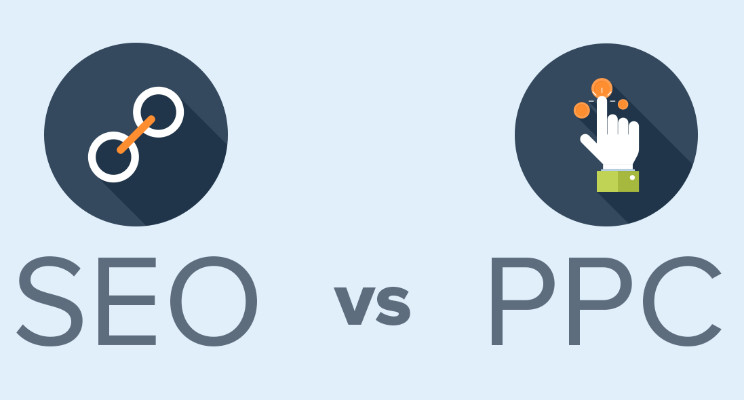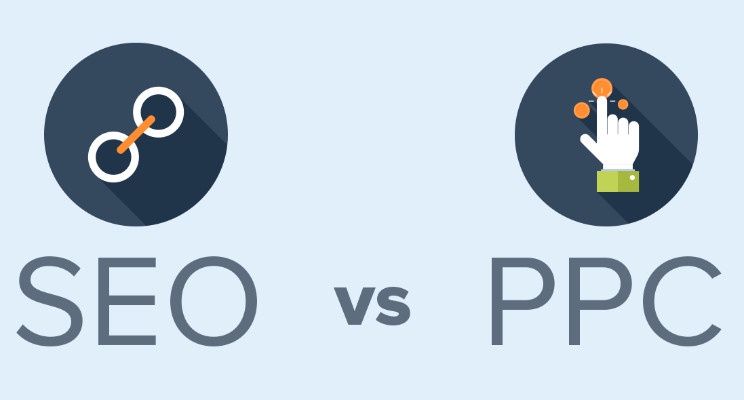Understanding SEO and PPC
In the ever-evolving landscape of online marketing, two popular strategies stand out: Search Engine Optimization (SEO) and Pay-Per-Click (PPC) advertising. Both approaches aim to increase website visibility, drive traffic, and ultimately generate leads or sales. However, they differ significantly in their execution, cost structure, and long-term impact.
In this article, we will explore the key differences between SEO and PPC, highlighting their unique characteristics, benefits, and best use cases. By the end, you will have a clear understanding of how these strategies can help your business succeed in the competitive digital realm.

The Fundamentals of SEO
1.1 What is SEO?
SEO, short for Search Engine Optimization, refers to the process of optimizing a website to improve its visibility and organic (non-paid) search engine rankings. The goal is to appear higher in search engine results pages (SERPs) for relevant queries, leading to increased organic traffic and potential conversions.
1.2 How Does SEO Work?
SEO encompasses various techniques and practices to enhance a website's visibility to search engines like Google. It involves both on-page and off-page optimization strategies, such as:
- Keyword Research: Identifying relevant keywords and phrases that users search for.
- On-Page Optimization: Optimizing website elements like title tags, meta descriptions, headings, and content to align with target keywords.
- Quality Content Creation: Producing high-quality, valuable, and engaging content that attracts and retains visitors.
- Link Building: Earning backlinks from reputable websites to improve authority and credibility.
- Technical SEO: Ensuring proper website structure, mobile-friendliness, site speed, and indexability.
1.3 Benefits of SEO
SEO offers several advantages for businesses:
- Long-Term Results: Once your website achieves good organic rankings, it can sustain traffic and visibility over an extended period without continuous ad spend.
- Credibility and Trust: Organic search results are often perceived as more trustworthy by users, as they are considered earned rather than paid for.
- Cost-Effective: While SEO requires upfront investment, it can be more cost-effective than PPC in the long run, as you don't pay for each click or impression.
- Increased Brand Awareness: Higher search engine rankings lead to increased brand exposure, as more users discover and interact with your website.
- Targeted Traffic: SEO helps attract relevant, high-intent users actively searching for products or services you offer.
The Essentials of PPC
2.1 What is PPC?
PPC, or Pay-Per-Click, is an advertising model in which advertisers pay a fee each time their ad is clicked. It is a form of search engine marketing where businesses bid for ad placement in search engine sponsored listings or partner websites.
2.2 How Does PPC Work?
PPC campaigns revolve around keyword targeting and ad auctions. Advertisers select relevant keywords they want their ads to appear for and bid on them. When a user searches for a keyword, an auction takes place, and the search engine determines the ad placements based on factors like bid amount, ad quality, and relevance.
Benefits of PPC
PPC offers distinct advantages that make it an attractive option:
- Immediate Visibility: Unlike SEO, PPC provides instant visibility and exposure for your brand. Once your ads are approved, they can appear at the top of search results, driving immediate traffic to your website.
- Precise Targeting: PPC allows for precise audience targeting based on factors such as demographics, location, interests, and even specific keywords. This ensures your ads reach the right people at the right time.
- Measurable Results: PPC platforms provide detailed performance metrics, allowing you to measure the effectiveness of your campaigns. You can track clicks, impressions, conversions, and calculate the return on investment (ROI) for your advertising spend.
- Flexibility and Control: With PPC, you have full control over your ad campaigns. You can set daily budgets, adjust bids, and make real-time changes to optimize performance based on data and insights.
- Complementary to SEO: PPC and SEO can work together synergistically. While SEO focuses on organic traffic, PPC can be used to capture additional traffic for highly competitive keywords or specific promotions.
Differentiating Factors: SEO vs. PPC
Now that we've explored the fundamentals and benefits of both SEO and PPC, let's dive deeper into the factors that differentiate these two strategies:
3.1 Cost Structure
One of the fundamental distinctions between SEO and PPC is the cost structure:
- SEO: While SEO requires investment in terms of time, effort, and potentially hiring SEO professionals or agencies, it does not have direct costs for clicks or impressions. The results of SEO efforts are typically seen in the long term.
- PPC: PPC involves immediate costs, as advertisers pay for each click or impression on their ads. The cost per click (CPC) can vary depending on factors such as keyword competitiveness and quality score. Advertisers must set a budget and monitor their spend to ensure it aligns with their goals.
3.2 Timeframe and Results
The timeframe and results of SEO and PPC campaigns also differ:
- SEO: SEO is a long-term strategy that requires patience. It takes time for search engines to crawl and index websites, and for optimizations to take effect. Generally, it can take several months to see significant improvements in organic rankings and traffic. However, once established, the results can be more sustainable and enduring.
- PPC: PPC delivers immediate results. Once your ads are approved and campaigns go live, you can start generating clicks and traffic right away. However, the impact of PPC campaigns is more immediate and short-term. As soon as you pause or stop your ads, the traffic stops as well.
3.3 Click Distribution and User Behavior
The way users interact with organic search results and paid ads can also influence the choice between SEO and PPC:
- SEO: Organic search results tend to receive the majority of clicks, as users often trust and click on non-paid listings. The distribution of clicks is typically skewed towards the top-ranking results, with diminishing click-through rates (CTRs) for lower-ranked pages.
- PPC: Paid ads appear above organic results and sometimes on the right sidebar. While they receive a smaller portion of clicks compared to organic results, they can still capture valuable traffic. Some users prefer clicking on ads when they are looking for immediate solutions or specific products/services.
Choosing the Right Strategy
Now that we have examined the differences between SEO and PPC, the question arises: which strategy is right for your business? The answer depends on various factors, including your goals, budget, timeline, and target audience.
4.1 When to Choose SEO
- Long-Term Sustainability: If you are looking for sustainable, long-term results and have the patience to invest in an organic growth strategy, SEO is the way to go. SEO helps build a strong foundation for your website's visibility and can lead to a consistent flow of organic traffic over time.
- Limited Budget: SEO can be more cost-effective in the long run, as you don't pay for each click or impression. If you have limited resources or a tight budget, investing in SEO allows you to gradually improve your website's rankings and visibility without significant ongoing costs.
- Brand Authority: SEO helps establish your brand as an authority in your industry. By consistently producing high-quality content, earning backlinks, and optimizing your website, you can build credibility and trust with both search engines and users.
4.2 When to Choose PPC
- Immediate Results: If you need immediate visibility and want to start driving traffic to your website quickly, PPC is an excellent choice. PPC campaigns can generate instant results, especially when you have time-sensitive promotions, product launches, or events.
- Highly Competitive Industries: In industries with intense competition for organic rankings, PPC can help you secure top positions on search engine results pages. This ensures your brand stays visible and captures valuable clicks, even if you are still working on improving your organic rankings.
- Targeted Campaigns: PPC allows for precise audience targeting, making it ideal for businesses with specific target demographics or localized markets. You can tailor your ads to reach the right people at the right time, increasing the likelihood of conversions.
Conclusion: Leveraging the Power of SEO and PPC
In conclusion, both SEO and PPC are powerful online digital marketing strategies with their unique advantages. SEO focuses on long-term organic growth, credibility, and sustainability, while PPC offers immediate visibility, precise targeting, and flexibility.
To make the most of these strategies, consider combining SEO and PPC in your digital marketing efforts. SEO provides a solid foundation for your website's visibility and long-term growth, while PPC can complement SEO by driving immediate traffic, capturing high-intent users, and boosting your online presence in highly competitive environments.
Remember, the choice between SEO and PPC depends on your specific goals, budget, and target audience. Analyze your business needs, conduct thorough keyword research, and develop a holistic digital marketing strategy that leverages the strengths of both SEO and PPC.
With a well-executed and comprehensive approach, you can maximize your online visibility, increase traffic, and ultimately achieve success in the competitive digital landscape.
Also Read


No comments yet